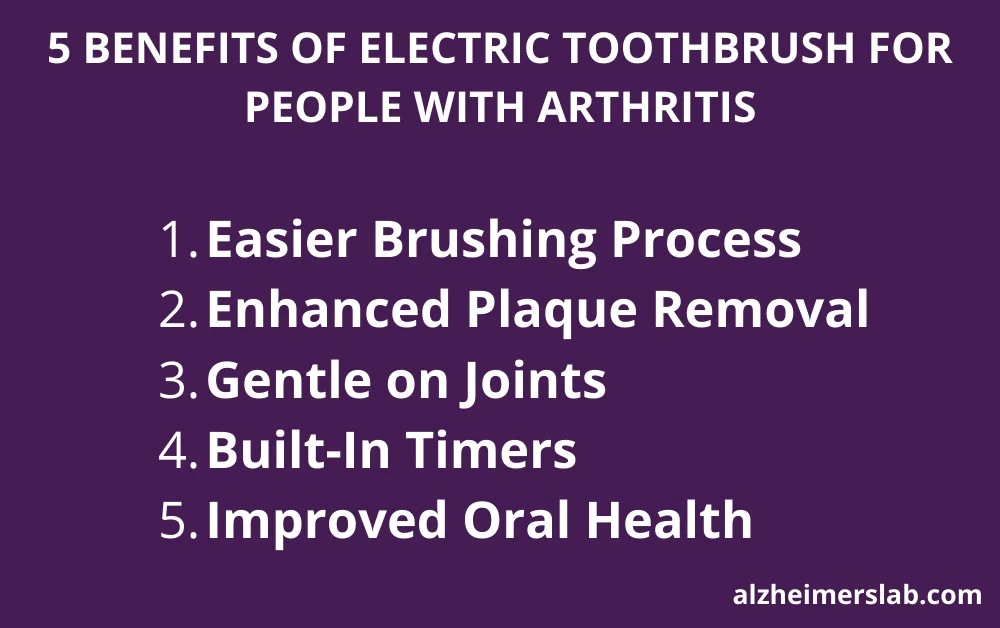Are Electric Toothbrushes Good for Seniors with Arthritis?
I want to talk about something that might not be on our minds every day but is essential for our well-being – oral health. Specifically, we’ll dive into the topic of electric toothbrushes and whether they are a good fit for seniors dealing with arthritis.
You see, taking care of our teeth is crucial no matter our age. But as we get older, health issues like arthritis can make simple tasks like brushing our teeth a bit tricky. So, let’s learn how electric toothbrushes can make life easier and keep our smiles bright without breaking a sweat.
The Arthritis Challenge
First off, what’s arthritis, you might ask? Well, it’s a common condition that makes our joints painful and stiff. When it affects our hands, holding a regular toothbrush can feel like trying to grasp a slippery fish.
Imagine trying to brush your teeth when your fingers just won’t cooperate. The struggle is real, isn’t it? But don’t worry; there’s a solution.
The Magic of Electric Toothbrushes

Enter the electric toothbrush – a game-changer in oral hygiene for seniors, and for good reason. These nifty gadgets are like having a dental assistant in your bathroom, making brushing a breeze.
The Big Handle Advantage
One of the standout features of electric toothbrushes is their big handle. It’s like holding a comfortable, non-slip grip in your hand. You don’t have to worry about dropping it, even if your arthritis acts up.
Just picture it: you wake up, reach for your electric toothbrush, and the handle fits snugly into your hand. No more fumbling around with a tiny toothbrush that’s determined to escape your grasp.
Less Effort, Better Results
Now, let’s talk about the effort needed to brush your teeth. With a manual toothbrush, you need to move your hand and wrist a lot, which can be tough if arthritis is cramping your style.
But here’s the beauty of electric toothbrushes: they do most of the work for you. Just guide the brush over your teeth, and those bristles rotate or vibrate, scrubbing away plaque and food particles.
A Friendly Reminder
Have you ever wondered if you’re brushing your teeth too hard? It’s a common concern, especially if you’re trying to get that squeaky-clean feeling. But brushing too vigorously can actually harm your teeth and gums.
Modern electric toothbrushes are like your personal dental coach. They often come with a built-in pressure sensor. If you’re pressing too hard, they’ll let you know with a gentle vibration or a change in the brush’s sound. It’s like a reminder from a friendly neighbor saying, “Ease up a bit, buddy!”
Options Galore
Electric toothbrushes come in all shapes and sizes. There are simple ones with just an on/off button, and there are more advanced models with multiple cleaning modes.
Let’s keep it simple for a moment. Imagine you want a toothbrush that does a bit of everything – a thorough clean for your teeth and gums. You can find electric toothbrushes that offer a standard mode for daily use and a sensitive mode for those days when your gums are a bit tender.
Battery Power
Okay, I know what you’re thinking. “Electric toothbrushes must need a lot of power, right?” Well, yes and no. They do need batteries or need to be charged, but they’re pretty efficient.
Most electric toothbrushes can last a week or more on a single charge. Some even come with handy charging stations, making it as simple as plugging in your phone at night.
Easy Maintenance
Now, here’s a tip from your friendly neighbor – electric toothbrushes are easy to maintain. The heads (the bristle part) can usually be replaced every few months, just like regular toothbrushes. Pop off the old one, snap on a new one, and you’re good to go.
Is It Worth the Investment?
Alright, you might be thinking, “Are electric toothbrushes worth the investment?” It’s a valid question. These toothbrushes tend to be a bit pricier than their manual counterparts. But think about it this way – it’s an investment in your health.
A healthy mouth means fewer trips to the dentist (and who enjoys those?), and it can save you money in the long run by preventing expensive dental procedures. Plus, your smile is priceless, right?
What does the research say?
This study by Dr. Yashika Jain compared powered toothbrushes (the ones that vibrate or rotate) to manual toothbrushes to see which one is better at keeping our teeth clean and gums healthy.
They studied 60 dental students for six weeks, half of them using a powered toothbrush and the other half using a regular one.
The results showed that both groups had significant improvements in their gum and teeth health. However, the group using the powered toothbrush had a better reduction in plaque (the sticky stuff on our teeth) than the manual toothbrush group after two weeks and even more so after six weeks.
In simple terms, this study suggests that using a powered toothbrush can help us clean our teeth and gums better than a regular toothbrush, no matter our skills or training. So, it’s a good idea to consider a powered toothbrush for a healthier smile.
Conclusion
So, are electric toothbrushes good for seniors with arthritis? I’d say a resounding “Yes!” They offer a bigger handle for easier grip, require less effort, and even remind you to be gentle on your teeth and gums.
But remember, I’m just your blogger friend, not a dentist. Before making any changes, it’s always a good idea to chat with your dentist. They can give you personalized advice based on your oral health needs.
Now, here’s a question for you: Have you tried an electric toothbrush, and what was your experience? Share your story in the comments below!
